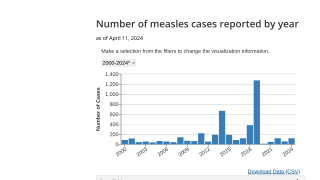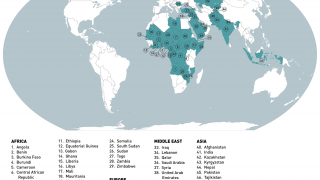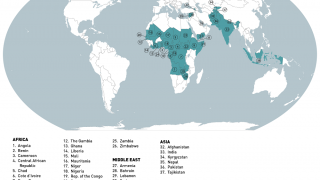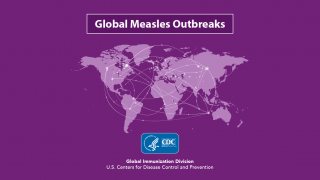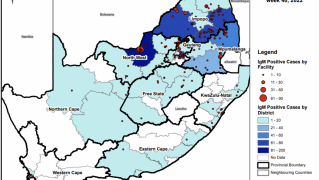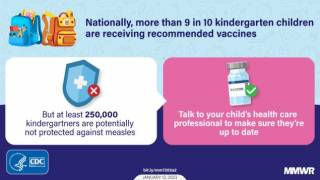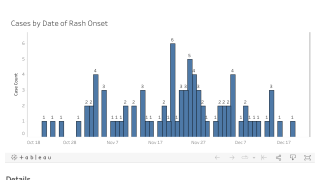China is Winning the Measles Competition in 2019

Measles outbreaks are occurring around the world, and some countries are doing better at reducing this infectious disease from spreading.
According to recent information, China is doing a far better job at protecting children from this vaccine-preventable disease than the USA on 2 key metrics.
First, the World Health Organization (WHO) reported China had confirmed 843 measles cases through April 2019. From a total population basis, China’s per-person infection rate is approximately .006 per million people, when contrasted to its 1.4 billion residents.
This data compares with 764 measles cases confirmed by the US Centers for Disease Control and Prevention (CDC) on May 3, 2019. Based on the USA’s 327 million residents, the per million person measles infection rate is .02 per million.
The second comparison in China’s favor is the childhood vaccination rate.
According to UNICEF’s recent report in April 2019, the USA tops the list of high-income countries with the most children not receiving the 1st dose of the measles vaccine, at more than 2,593,000 million.
This total reflects approximately a 91 percent vaccination rate in the USA.
The UNICEF data is supported by a city perspective when analyzing the ongoing measles outbreak in New York City.
New York City recently reported 64 percent of its measles infected population are children, less than 4 years of age.
This data contrasts with China’s 1st dose measles vaccination rate for children, which is approximately 99 percent, according to UNICEF.
Furthermore, this children's vaccination rate is well above the 95 percent goal set by the WHO.
However, even though China has a very successful children's vaccination program, they continue to experience measles outbreaks.
Recently, researchers from Columbia University reviewed China’s vaccination challenges and offered useful insights into these outbreaks:
- “Due to uneven economic development, over 100 million workers in China migrate from less developed regions like Shandong to large cities for jobs,” said Wan Yang, Ph.D., assistant professor at the Columbia Mailman School, and this study’s lead author said in a press release.
- “Catch-up vaccination (programs) targeting migrant populations might be an efficient means of controlling current epidemics,” said Dr. Yang.
- “In addition to issues of migration, our study also revealed interesting differences in measles seasonality among the three study locations,” said senior author Jeffrey Shaman, Ph.D., Mailman School professor of Environmental Health Sciences.
- “More specifically, winter indoor heating in cold climates in cities like Beijing and Shandong may increase crowding or reduce ventilation and increase the risk of (measles) infection during cold months.”
- “Our findings revealed characteristics that we believe are crucial to understanding the current persistence of measles epidemics in China and for devising future elimination strategies,” said Dr. Shaman.
When visiting China in 2019, the CDC suggests visitors should be up to date on Routine vaccinations, which includes the measles-mumps-rubella (MMR) vaccine.
And, there are various travel vaccines recommended, such as Hepatitis A and Typhoid based upon your specific destination in China.
Some visitors to China may need:
- Japanese Encephalitis: You may need this vaccine if your trip will last more than a month, depending on where you are going in China and what time of year you are traveling. You should also consider this vaccine if you plan to visit rural areas in China or will be spending a lot of time outdoors, even for trips shorter than a month.
- Polio: You may need a polio vaccine before your trip to China if you are visiting the Xinjiang province, especially if you are working in a healthcare facility or humanitarian aid setting. If you were vaccinated against polio as a child but have never had a polio booster dose as an adult, you should get this booster dose. Adults need only 1 polio booster in their lives.
- Malaria: When traveling in China, you should avoid mosquito bites to prevent malaria. You may need to take prescription medicine before, during, and after your trip to prevent malaria, depending on your travel plans, such as where you are going, when you are traveling, and if you are spending a lot of time outdoors or sleeping outside.
All vaccines can cause side effects, which should be reported to a healthcare provider, or the CDC.
If you are not sure if you or your travel companions are fully protected against measles, schedule an appointment to see your healthcare provider at least one month before traveling internationally.
>>>Schedule Your Measles Immunity Test<<<
Certain groups of people should not get measles-containing vaccines. If you or a travel companion cannot safely receive these vaccines, talk to your doctor and consider making alternative travel plans.
Our Trust Standards: Medical Advisory Committee








